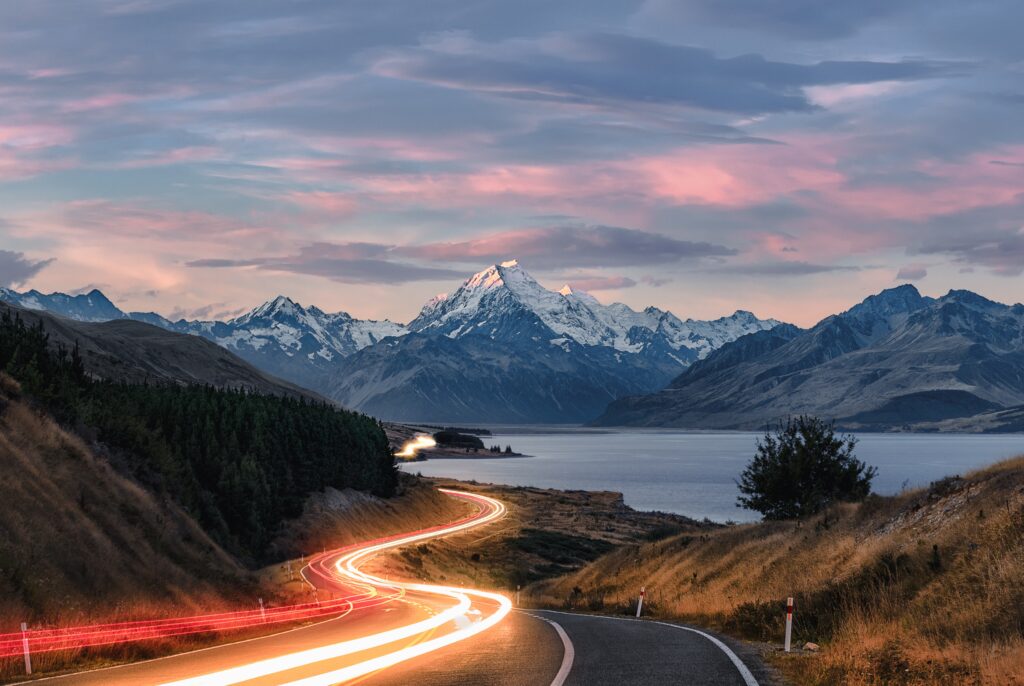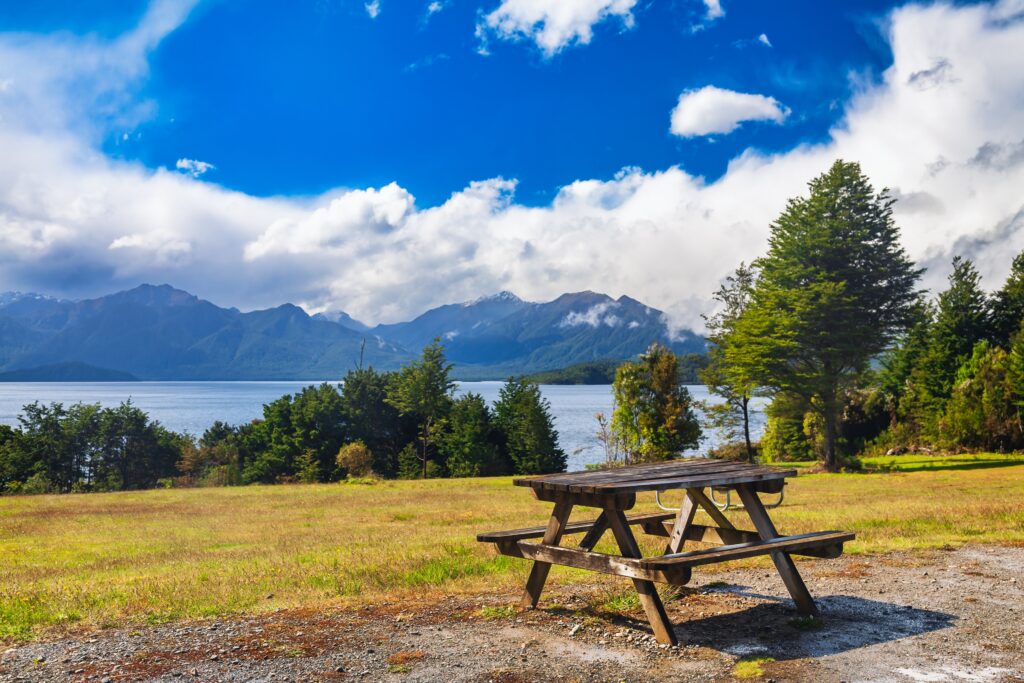Are you getting itchy feet again and would like to roam free on the breathtaking New Zealand roads? We get it, there’s no better feeling. As much as we would like to sit behind the wheel without a care in the world, there are a few things to consider before embarking on any trip. These are to protect both the travellers and the nature around us. In this post, you will find out what is freedom camping with a ton of useful links and information.
Freedom camping is staying overnight on public land that is not part of a holiday park or officially recognised campground. Even though it’s completely legal, there are certain rules and regulations one must follow.
So, how do you know if your overnight parking spot constitutes freedom camping? If you camp overnight with a motorhome, campervan or RV in a place with no or minimal facilities, you’re most likely a freedom camper.
Bear in mind that the majority of freedom camping sites on public land in NZ are limited to vehicles that are Certified Self-Contained (CSC). If your vehicle does not meet this requirement, you can still camp on some council or Department of Conservation (DOC) land.

Qualifying for CSC means that your vehicle meets certain needs, and every person in the vehicle would have the capacity to sustain themselves for three days without requiring any external services or discharging waste.
The required criteria include and are not limited to:
Once you get certified, it is valid for four years unless you make any major alterations to your motorhome.
Some planning is essential to ensure a smooth journey when freedom camping. Many spots have a limited number of vehicles allowed each night, and there are a few places that require a small fee.
Every council has different bylaws. Some have a limited number of nights of how long you’re allowed to camp with your motorhome, others might not allow it within a certain distance of a town. You can find the maps for the North and South Islands, as well as council websites for all the councils in New Zealand here.
Council websites are also a great way to find out about any road closures or any warnings you might have to be aware of so that your trip goes as smoothly as possible.
DOC campsites are an excellent option to explore New Zealand because they are free, and most of them will not require to have a self-contained motorhome as there are more facilities available. There are two most important sings to always look out for just in case:
For the most up-to-date information, it is best to contact a DOC visitor centre for the area where you are planning to stay.
There’s also a very useful network of official visitor information centres called isite. They are managed by Tourism New Zealand and can help you with anything from finding free maps and places to eat to helping with itinerary planning. Go check it out!
Another excellent website is Camper Mate, which you can download as an app on your phone.
The one and probably the only thing you can be guaranteed at a freedom camping site is a piece of flat ground. Incredible views are always guaranteed, however, the actual parking spot could be:
If you imagine a camping ground facility with amenities, showers, etc. – that might not always be the case. Some freedom camping locations have basic facilities but are not required to. That is why it is crucial to have your motorhome ready and geared up so everyone can enjoy the peaceful landscape of New Zealand without causing harm to the environment or spending half a day looking for a bathroom!

Always remember the golden rule when camping – leave no trace. New Zealand has an incredible landscape across both islands, and everyone is here to help keep the wild as wild as it is. Make sure to:
You could potentially face a hefty fine of up to NZ $10,000 if you stay overnight where freedom camping is not permitted or if you breach any of the responsible camping regulations.
We are all here for the same reason – to enjoy the breathtaking landscape of New Zealand. Travelling with an open heart and mind, while respecting nature is a cornerstone of Kiwis heart. If you would like to learn more about this integral part of New Zealand culture, check out this website about The Tiaki Promise and how to care for New Zealand.
The best thing about freedom camping is that it’s wild and free. You don’t have to follow an itinerary or check in by a certain time of day. You get to experience the most remote and picturesque places on earth with peace of mind. If that sounds like happiness to you – join the club of freedom campers!
© Kohi Campers 2023 – Website Designed & Developed by Brand Supply